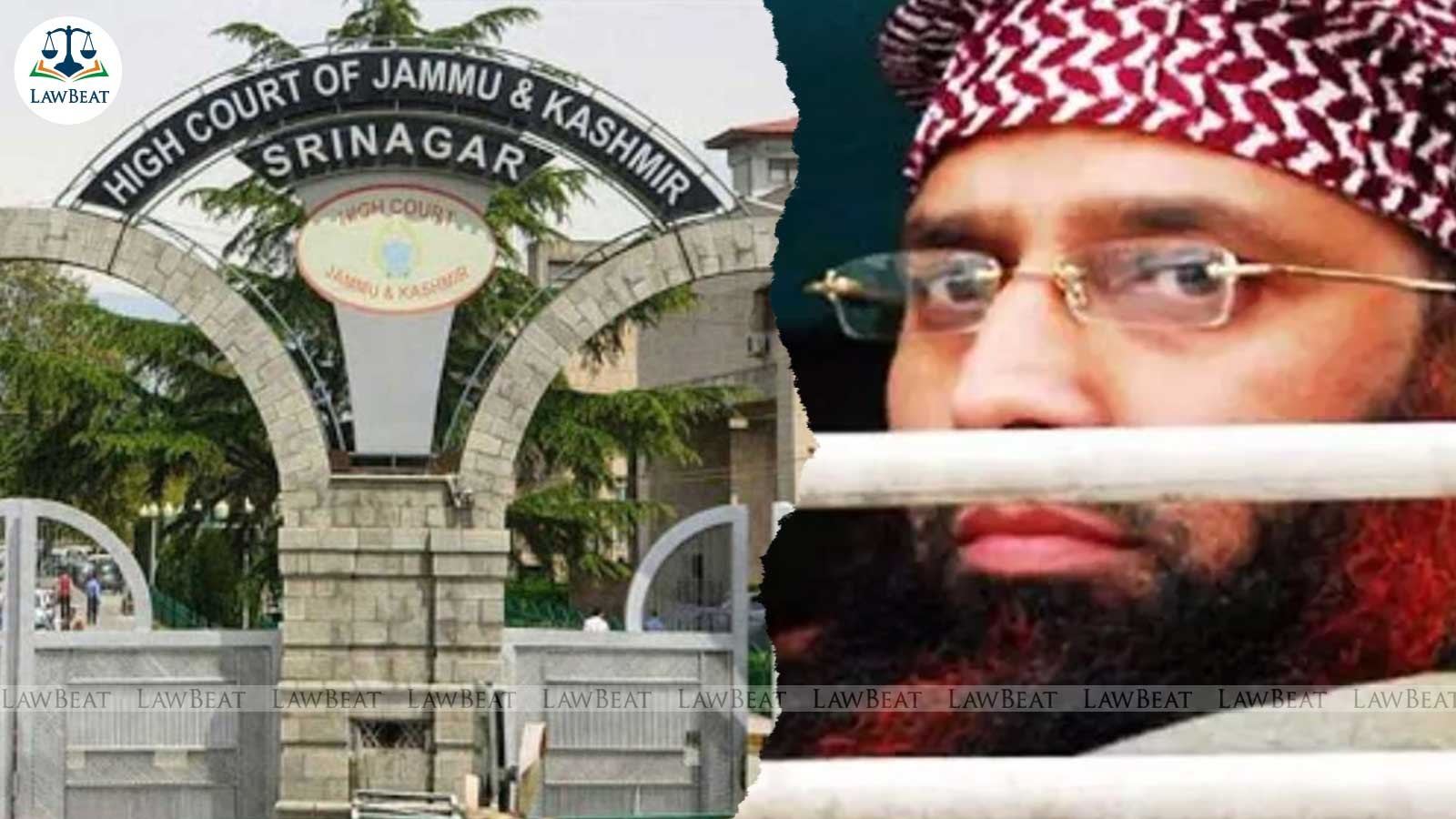Liberty Cannot Be Claimed By Those Violating Life and Liberty of Others : J&K and Ladakh HC Denies Remission Plea for Hizbul Mujahideen Militant

The court noted that “in the matter of heinous crimes like terrorist crimes, which has become not less than a menace for our country, the reformative theory of punishment has to take a back seat”
The Jammu and Kashmir and Ladakh High Court has dismissed the remission plea of Kashmiri separatist and Hizbul Mujahideen militant Ashiq Hussain Factoo. The court held that “Once it is established that a person has deprived another person of his life and liberty, such a person has no right to ask the court to uphold his liberty.”
The Division Bench, comprising of Justice Sanjay Dhar and Justice M.A. Chowdhary, emphasised that heinous crimes such as terrorism require a stricter legal approach and cannot be treated under the reformative theory of punishment. It clarified that “The concept of reformative sentencing policy cannot be stretched to tyrannical limits so as to extend an undue favour to a person who has been convicted of a heinous offence after following due procedure of law,”
Factoo, a former Hizbul Mujahideen member, has been serving a life sentence for his involvement in the 1992 assassination of Kashmiri human rights activist Hriday Nath Wanchoo. Convicted under the Terrorist and Disruptive Activities (Prevention) Act (TADA), Factoo and other accused were sentenced to life imprisonment, having been found guilty of offences under Section 3 of the TADA Act and Section 302 read with Section 120-B of the Ranbir Penal Code (RPC).
Factoo challenged the state’s decision to deny him remission, arguing that he had completed over 20 years in prison and was thus entitled to release. His counsel, Senior Advocate Colin Gonsalves, contended that according to Section 3 of the Jammu and Kashmir Prisoners Act, life imprisonment should be considered as 20 years. He further argued that Rule 54.1 of the Jail Manual, which excludes convicts of terrorist crimes from remission, violated Articles 14 and 21 of the Indian Constitution.
In opposition, Senior Additional Advocate General (Sr. AAG) Mohsin-ul-Showkat Qadri, representing the state, argued that terrorist crimes, particularly in Jammu and Kashmir, have caused immense damage to society and warrant harsher treatment.
The court highlighted that the legal principle established by the Supreme Court maintains that life imprisonment means imprisonment for the natural life of the convict. The court referenced the case of Gopal Vinayak Godse vs. State of Maharashtra (1961), which established that life sentences must be interpreted as covering the entirety of a convict's natural life unless remission is granted by the state.
The court noted that “the terrorist crimes in our country, more particularly in the erstwhile State of J&K, have adversely impacted the lives of the whole population. In fact, terrorism has been a scourge and menace for the people of this country,” It cited the Union of India vs. V. Sriharan (2016) case, asserting that laws must consider the unique socio-political context of Jammu and Kashmir, where terrorism has caused widespread suffering and loss of life. The court remarked, “it is clear that in the matter of heinous crimes like terrorist crimes, which has become not less than a menace for our country, the reformative theory of punishment has to take a back seat, at least till such time the social environment in our country improves and we have the adequate facilities of reformation of the prisoners in place.”
Regarding Rule 54.1, which bars remission for convicts of terrorist crimes, the court upheld its constitutional validity stating that the classification of terrorist crimes justifies a different treatment from other offences. In furtherance, the court held that it cannot be claimed that the respondent State has violated the provisions of Article 14 of the Constitution by classifying terrorist crimes as a category that excludes them from the scope of remission.
The court, however, clarified that despite the statutory limitations imposed on the respondents regarding the petitioners' eligibility for remission, the President and Governor, under Articles 72 and 161 of the Constitution, retain the power to grant pardons or remission.
Cause Title: DR. ASHIQ HUSSAIN FACTOO v STATE OF J&K & OTHERS [LPA No.230/2012]
